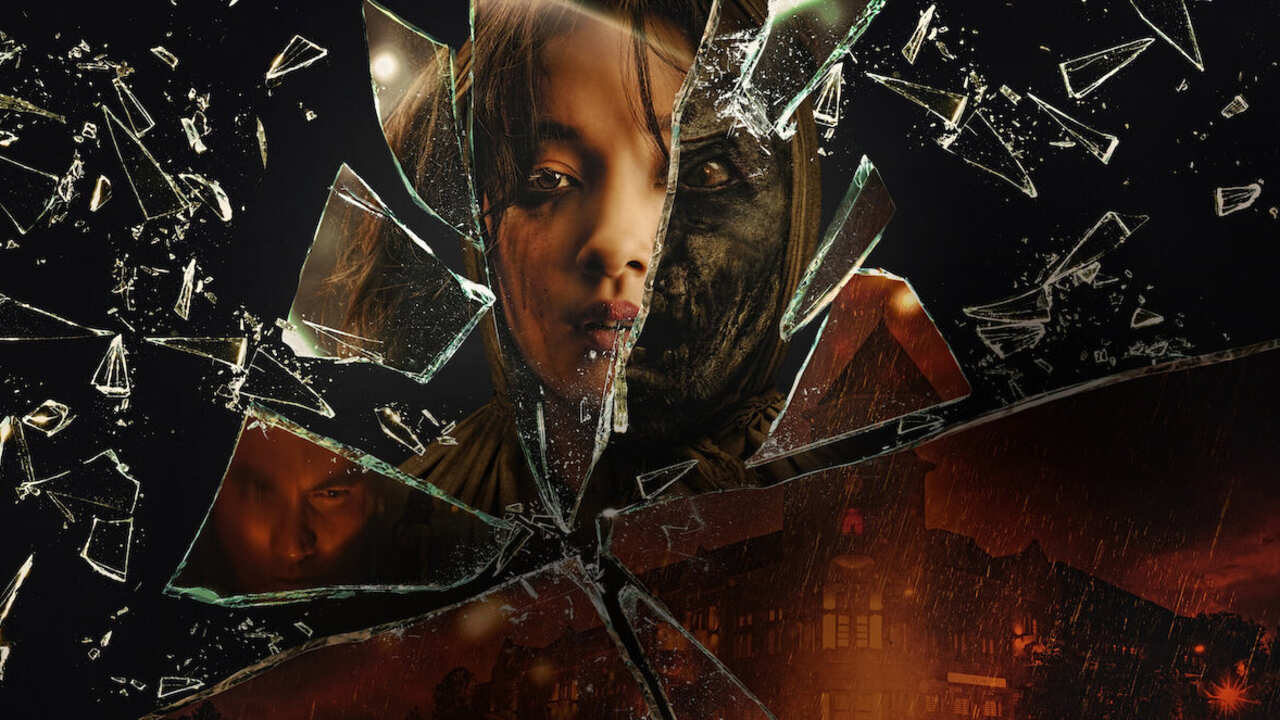
"Possession: Kerasukan" is a 2024 Indonesian psychological horror film that boldly reimagines the cult classic "Possession" by Andrzej Żuławski. Set in modern-day Jakarta, this version swaps the grittiness of Cold War Berlin for the bustling, shadowy streets of Indonesia’s capital, blending familiar elements of horror with cultural nuance. Director Razka Robby Ertanto takes on the ambitious task of adapting a film that has always been known for its intensity, and he mostly delivers on this promise—though not without a few stumbles along the way.
At the heart of the story is Faris, played by Darius Sinathrya, whose life begins to spiral when he returns from military service to a wife he no longer recognizes. Carissa Perusset delivers an unsettling yet mesmerizing performance as Ratna, a woman whose bizarre, almost feral behavior leaves Faris—and the audience—on edge from the very beginning. As Faris tries to understand what has happened to his once-loving partner, the film layers into themes of infidelity, obsession, and the supernatural, leaving viewers with more questions than answers.
Much like the original film, "Possession: Kerasukan" is not your typical horror flick with jump scares and slasher tropes. Instead, it delves into psychological terror, where the real fear comes from watching a seemingly ordinary life unravel into something alien and horrific. The film is deeply metaphorical, though it avoids spelling things out for the audience. Some will find this ambiguity to be part of the film's brilliance, while others might leave scratching their heads.
Ertanto’s direction builds suspense through a slow, deliberate pace that teases out the plot pieces. The tension doesn't come from what you can see but from what is hinted at—a movement in the corner of your eye, a strange noise, or an eerie shift in the atmosphere. There’s an almost suffocating claustrophobia in the way the camera traps the characters in tight, oppressive spaces. Jakarta becomes a labyrinthine character itself, a city teeming with life but isolating in its dark, narrow alleys and crowded streets.
However, this slow-burn style may not appeal to everyone. For some, the pacing could feel too drawn out, especially in the first half where it takes time to really kick into gear. But if you have the patience, the tension is worth the wait. As the film escalates, so do the stakes, and the descent into madness feels like a rollercoaster you can’t get off, even as it hurtles toward chaos.
One of the film’s standout elements is its commitment to the grotesque. As Faris digs deeper into Ratna’s behavior, the horror becomes physical as well as psychological. The creature design is nightmarish, evoking visceral reactions, and these moments are where the film shines in its ability to disgust and terrify. Without giving too much away, Ratna’s transformation from a distressed wife to something far more monstrous is a disturbing evolution that the film handles with gut-wrenching detail. These moments bring a sharp, horrific contrast to the earlier, quieter scenes of unraveling domestic life.
Still, the film’s ambition does occasionally get the better of it. The plot is as dense as it is abstract, and while the atmosphere is captivating, not all of the narrative threads are pulled together by the end. The supernatural elements introduced in the second half, while compelling, feel a bit underdeveloped and can leave viewers unsure of what is metaphorical and what is literal. This vagueness works for those who enjoy ambiguity, but others may feel unsatisfied, wanting clearer explanations.
Carissa Perusset is undoubtedly the emotional core of the movie. Her portrayal of Ratna’s descent is chilling—she oscillates between heartbreaking vulnerability and terrifying aggression. Paired with Darius Sinathrya’s grounded performance as Faris, their interactions are at once painful and engrossing to watch, making it difficult to look away even as the horror mounts.
Where "Possession: Kerasukan" excels is in its ability to leave a lasting impression. It’s a film that worms its way into your mind, making you question what you just saw. Ertanto’s remake doesn’t attempt to outdo Żuławski’s original in scale or shock value, but instead brings a uniquely Indonesian touch to the material. The cultural context enriches the story, adding layers of mysticism and local folklore that feel organic to the narrative.
In conclusion, "Possession: Kerasukan" is not for everyone. It’s a slow, unsettling experience that demands patience and an appreciation for the weird and unexplainable. For fans of psychological horror and those familiar with the original, it offers a fresh, chilling reinterpretation that honors its roots while carving out its own distinct identity. It’s a challenging, eerie ride—one that might not answer all of your questions, but will leave you thinking long after the credits roll.
Final Score- [6/10]
Reviewed by - Anjali Sharma
Follow @AnjaliS54769166 on Twitter
Publisher at Midgard Times
Hi Everyone, after a due consideration, we have decided that we will be open for donations to help us in managing our website. We will be greatful for any kind of amount we receive. Thanks!
— Midgard Times 🎬 (@Moviesr_net) January 4, 2026
PayPal- [email protected] pic.twitter.com/DlNNz5Npm5
Get all latest content delivered to your email a few times a month.
Bringing Pop Culture News from Every Realm, Get All the Latest Movie, TV News, Reviews & Trailers
Got Any questions? Drop an email to [email protected]